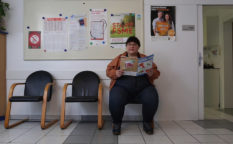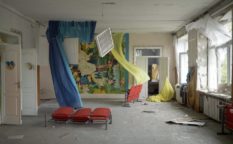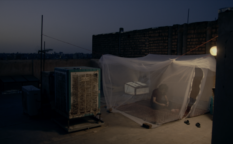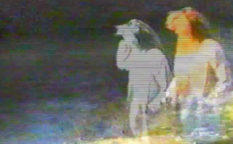Review: Invisible City: La materia non conta (2020)
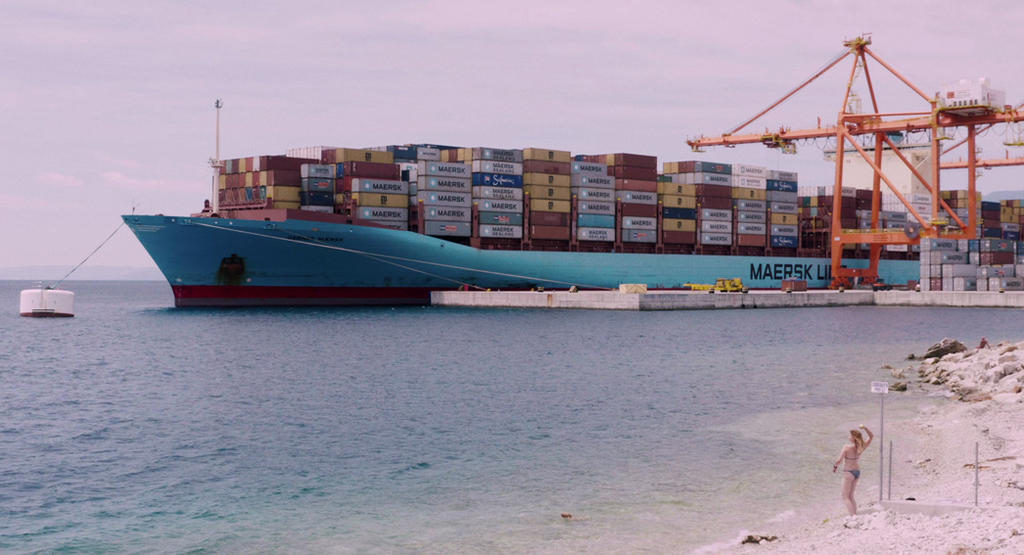
The city of Rijeka, located on the north-eastern Adriatic coast in Croatia, was unfortunate enough to bear the title of the European Culture Capital in the year of the Covid-19 pandemic. Exactly one century ago, the city was also the venue of a historical event that started the avalanche now known as fascism: it found itself at the very centre of a huge military, political and diplomatic intrigue when the “warrior-poet” Gabriele D’Annunzio marched in with his troops and took the city for Italy.
The period of the occupation before the formal annexation, seen from the two opposing sides in the forms of letters and diary notes, is the topic of the mid-length documentary Invisible City: La materia non conta directed by the young French filmmaker Pierre Commault. The film was completely made on a shoestring budget during the time the artist spent in Rijeka on Kamov residency. It was screened earlier this year in Rijeka, while its festival premiere took place at the recently finished Liburnia Film Festival in the nearby town of Opatija.
The quote in Italian in its title, meaning “the material does not count”, comes from D’Annunzio himself and one of the manifests he wrote about his vision of the future for the city he conquered. However, the occupation had very material, and often dire consequences for those involved on both sides. D’Annunzio was certainly a complex historical and artistic figure, hard to simply label as a proto-fascist, since he switched his beliefs quite often from anarchism to fascism to libertarianism to Zen-Buddhism, falling in and out of the alliances with Mussolini.
In his film, Commault abundantly quotes D’Annunzio’s speeches and letters, transcribing them directly to the bright screen, often accompanied by the footage obtained from different film archives not just in Italy, Croatia and the rest of former Yugoslavia, but also from Russia and the United States. Those part deal with the historical context, which is necessary for informing the viewers who were not acquainted with it.
The rest of the material, occupying roughly two thirds of the screen time, is based on the letters an Italian legionaire sent to his fiancée back home and the diary that a local Slovenian-Croatian girl kept while also waiting for her fiancé to come back from the Yugoslav army service. The content of those notes is presented via the off-screen narration by Tea Tulić and Tommaso Usberti, whose readings are a bit too theatrical for cinema, but are illustrated by the newly-filmed footage of the contemporary Rijeka that has little to no connections with that of a century ago. The actors Andrea Ponisch and Natalija Bešlić appear in the attempts of dramatization of the written content.
It is obvious that Commault aimed less at the dramatization and illustration and more in the direction of the “food for thought”. The filmmaker was involved in multiple crew roles, but the help he had by his co-cinematographer Maxence Lemmonier and co-editor Souliman Schelfout proved to be more than enough for fulfilling his artistic vision. The absence of music, with the exceptions of the two songs for the credits sequences (the Italian patriotic for the opening and the local schlager for the closing) works well with the rest of the material, especially when it has to highlight Zoran Medved’s slightly overdone, but still fitting sound design employed in the moments of the emotional climax.
Invisible City: La materia non conta is a simple and effective piece of documentary filmmaking that is precious for the history buffs and especially those interested at the more personal view to the historical events. However, its firmly defined topic of the half-forgotten historical event and quite a local scope might prove to be a hard sale on the international market.
Original title: Nevidljivi grad: La materia non conta
Year: 2020
Runtime: 43’
Country: Croatia
Languages: Croatian, Italian
Directed by: Pierre Commault
Written by: Pierre Commault
Cast: Andrea Ponisch, Natalija Bešlić
Voice cast: Tea Tulić, Tommaso Usberti
Cinematography by: Pierre Commault, Maxence Lemmonier
Editing by: Pierre Commault, Souliman Schelfout
Sound design by: Zoran Medved
Sound recording by: Nina Almberg
Image post-production by: Maxence Lemmonier
Produced by: Marin Lukanović, Jelena Androić, Borko Novitović
Production company: Filmaktiv
Supported by: Région Ile-de-France, MSU Rijeka – Kamov Residency, Zaklada Kultura nova, National Fund for the Development of Civil Society, Croatian Audiovisual Centre (HAVC), City of Rijeka





